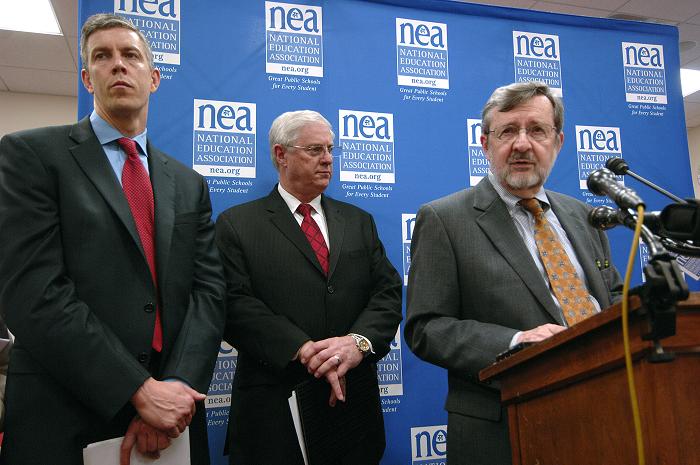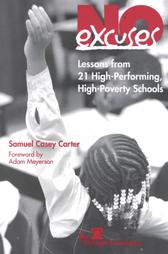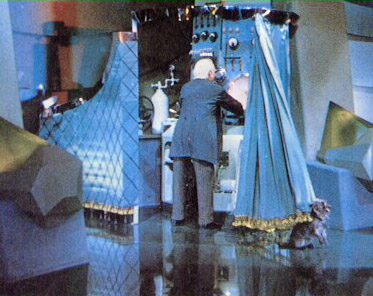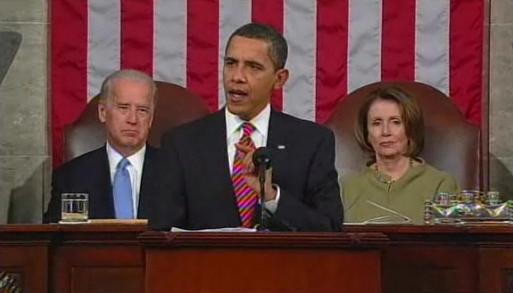by John Kirtley
redefinEd
August 26, 2013
As a white person from Iowa, I am always hesitant to write about the racial aspects of ed reform and parental school choice. I feel it is always better to have others with more credibility speak of it. But this weekend I saw two things that compelled me to write.
On Saturday, I read that the U.S. Justice Department is suing the state of Louisiana to block vouchers for students in public school districts that are under old federal desegregation orders. The statewide voucher program, officially called the Louisiana Scholarship Program, lets low-income students in public schools graded C, D or F attend private schools at taxpayer expense. This year, 22 of the 34 school systems under desegregation orders are sending some students to private schools on vouchers.
The Justice Department’s primary argument is that letting students leave for private schools can disrupt the racial balance in public school systems that desegregation orders are meant to protect. Sounds like a good idea, right?
But here’s the thing: according to the Louisiana Department of Education, 86 percent of the children on the program are black. Only 9 percent are white.
If roughly 90 percent of the kids on the program are black, I don’t really understand how them moving to private schools that would better serve them would worsen segregation in the public schools. Are they leaving schools that are mostly white? If so, should they be forced to stay there even though they aren’t being well served? How would you explain that to their parents?
On the 50th anniversary of Dr. King’s great speech, a black attorney general working for a black president filed a lawsuit to halt a program that is helping low-income black families in Louisiana choose a better school for their










 (Originally posted to the National Journal‘s
(Originally posted to the National Journal‘s  (originally posted on Politico‘s
(originally posted on Politico‘s  Four things you are guaranteed not to hear in Wednesday night’s SOTU:
Four things you are guaranteed not to hear in Wednesday night’s SOTU: (This post
(This post  A challenge to the NAACP, African-American parents and all Americans…
A challenge to the NAACP, African-American parents and all Americans… I have many colleagues who insist that deep down, US Secretary of Education Arne Duncan is a real education reformer, and is a reflection of an administration that is reform-minded on critical education issues. Because he hired this or that person, because he talks about charter schools, and because he told the press he thought that children currently in the DC scholarship program should be allowed to finish even if it is discontinued. There are some who believe he’s “one of us.”
I have many colleagues who insist that deep down, US Secretary of Education Arne Duncan is a real education reformer, and is a reflection of an administration that is reform-minded on critical education issues. Because he hired this or that person, because he talks about charter schools, and because he told the press he thought that children currently in the DC scholarship program should be allowed to finish even if it is discontinued. There are some who believe he’s “one of us.”
 All stimulus—all the time. There is nothing like a raucous action film filled with exploding cars and high-powered weaponry to distract you from your troubles and take your mind off your real obligations back home. Like it or not, this is the net effect of the Stimulus package now furiously hurdling through Congress like some action hero implausibly decimating everything in his way while the world around watches in awe—numb, but invigorated by the spectacle—waiting to be rescued.
All stimulus—all the time. There is nothing like a raucous action film filled with exploding cars and high-powered weaponry to distract you from your troubles and take your mind off your real obligations back home. Like it or not, this is the net effect of the Stimulus package now furiously hurdling through Congress like some action hero implausibly decimating everything in his way while the world around watches in awe—numb, but invigorated by the spectacle—waiting to be rescued.
